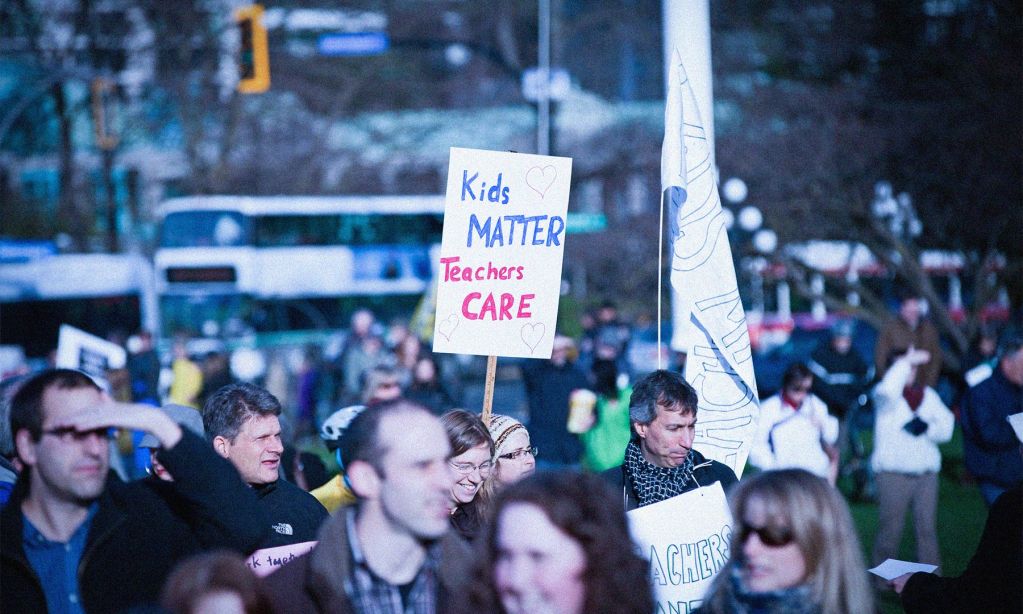With public support firmly behind teachers as they continue to take job action, the Saskatchewan government has ramped up its efforts to reshape public opinion about its current impasse in bargaining.
While the Saskatchewan Teachers Federation has prioritized the provision of broader public goods like classroom size and complexity and downplayed wage and benefit demands, the government is trying its best to flip that script. This week the Saskatchewan party caucus rolled out a series of “Myth vs Reality” graphics on social media in a rather clunky attempt to paint teachers’ concerns for classroom issues as somehow insincere, and wage demands as the real motivation.
While we can see why casting teachers as purely self-interested might prove an effective bargaining tactic, it also reveals something deeper about how the Saskatchewan Party—and other neoliberal governments—approach the issue of public education.
Neoliberalism looks to download responsibilities from government onto the family and the individual. Rather than provide a universal publicly funded educational system that can meet the diverse needs of society, neoliberals would prefer to leave that responsibility—including paying for it—to the private family. Each family can then go out into the marketplace and purchase the kind of education that best fits their child’s needs—if they can afford it. It's why the Saskatchewan party is so keen to promote private alternatives to public schools, like independent schools and homeschooling that often tailor their curriculum to the needs of specific social groups, and to the exclusion of others.
It also explains the resistance of the current government to address the diverse needs of modern classrooms in a public system. Teachers’ calls for the public system to provide greater supports for things like occupational therapists, speech language pathologists, psychologists or physical therapists are “extras” that neoliberals would prefer to be delivered via the market and at the discretion of the family.
If a child needs special supports, it is for the families to secure them. If the school has gaps in resourcing, then it is the parents’ responsibility to fill those gaps via the market. There is no collective obligation to ensure that all families’ children are receiving necessary educational supports. What is of concern are my children and their needs as I as a parent define them.
Given these sentiments, it’s no wonder that neoliberal governments resist the kinds of investments that addressing classroom complexity will entail. While the failure to make these investments will most likely result in deteriorating classroom learning, diminished supports, and the exacerbation of existing inequalities, for neoliberals, this just demonstrates the superiority of private alternatives.
The Education Minister has stated that classroom size and complexity issues are for local school boards to deal with. In other words, for the provincial government to act on these issues would be to undermine local school board autonomy. But since the government removed the school boards’ ability to raise revenues via the education tax, these boards don’t really have the ability to make these kinds of decisions without the agreement of the provincial government to provide adequate resources to fund them . It’s a sparkling example of another penchant of neoliberal governance—insulate government decisions from democratic input lest people challenge the priority of the market.
The government’s neoliberal vision of public education stands in stark contrast to that of Saskatchewan teachers. One proposes a robust, universal public system that can address the diverse needs of a pluralist and complex society, while the other offers a patchwork of private solutions that often fail to educate and expose students to the diverse array of human experience.
It’s no wonder then that the conversation between the teachers and the government often sounds as if they are speaking different languages. In many respects they are.







